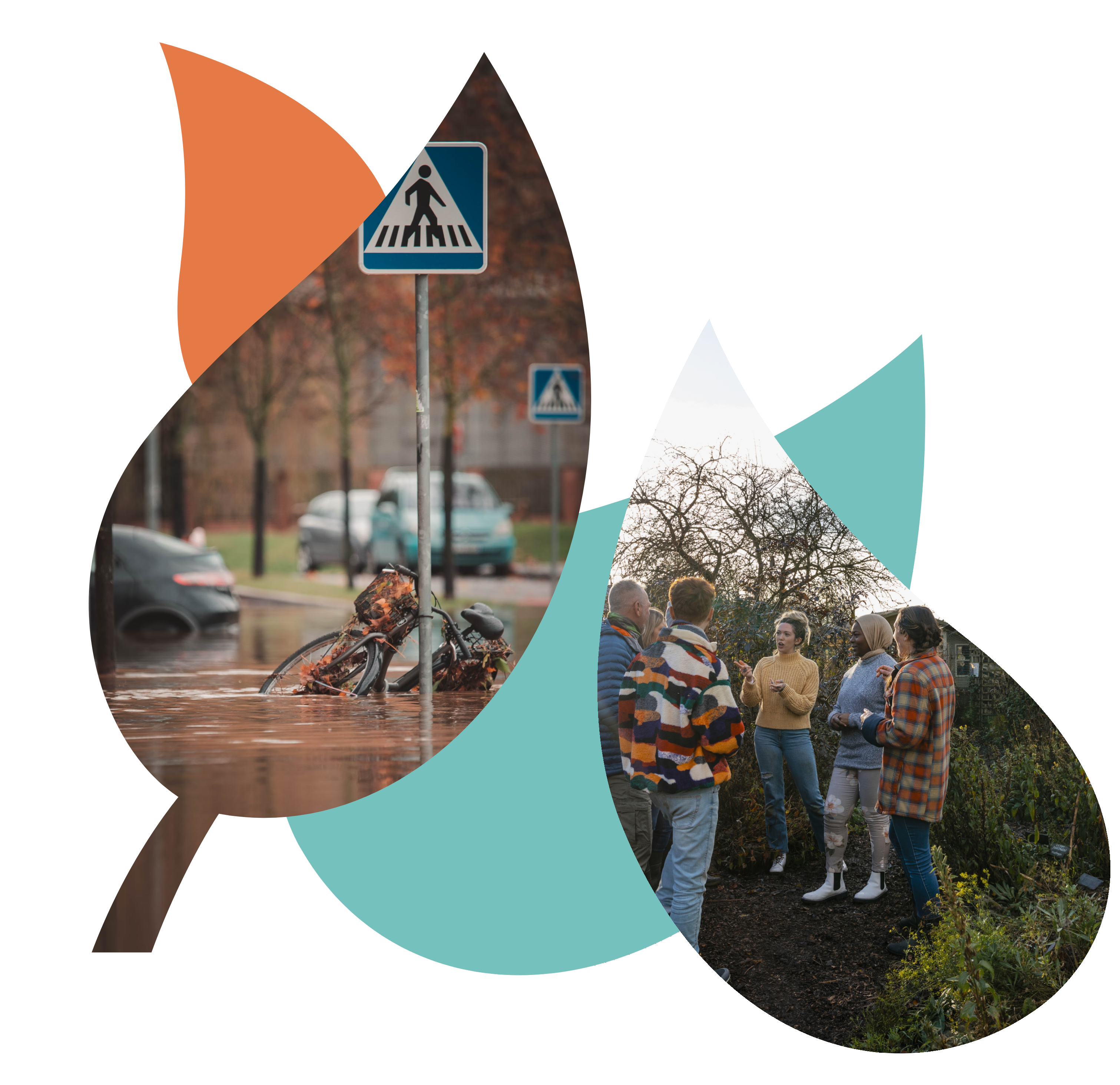Research line 1: Local knowledge and disaster management
Valorising local knowledge in the frame of the community-based disaster’s management and mitigating exposure.

This research line focuses on the intersectional vulnerabilities faced by impoverished and underprivileged groups, such as women, LGBTI+, youth, the elderly, people with various disabilities, migrants, and indigenous persons, in the context of natural and climate change related hazards. It aims to provide insight into how local communities are active in stepping up the preparedness, prevention, and management of disasters, and how they provide guidance on community empowerment to improve adaptation to climate change.
Research approach
The valorisation of local knowledge on natural hazards is innovative in the context of European climate change policy. The research will draw on theory, methods and expertise from gender studies, anthropology, sociology, biogeoscience, psychology, culture and cultural heritage, geography, and law. It will be implemented as five case studies, in Italy, Portugal, Sweden, Turkey and the UK.
Research cycle #1
May 2022 – April 2023
Narrative interviews will be used to unearth local knowledge and recent experience of natural disasters and understand attitudes and motivations for (lack of) change in behaviour and the ability/willingness to adapt behaviours. The expected outputs of this cycle include:
- 50 narrative summaries,
- 5 country level reports,
- a consolidated research line report.
Research Cycle #2
April 2023 – January 2025
Each of the case studies will identify best practices in community-based disaster management, emphasising the importance of mutual learning, collaboration and solidarity. Protagonists include NGOs/CSOs, citizens, local authorities, health authorities, etc. The expected outputs of this cycle are:
- a report on key findings,
- a report on interdependencies and best strategies.
Expected impacts
Overall, the research line will:
- establish connections with existing bottom-up initiatives and thereby help build the ACCTING Network of experts, researchers, practitioners and civil society organisations;
- identify vulnerable and disadvantaged groups at risk of natural and climate change related hazards;
- define (individual and collective) behaviours and social practices that are unsustainable and impede the achievement of community preparedness;
- address the relation between vulnerability factors and problematic behaviours and practices;
- analyse the relationship between structural inequalities and behavioural change within vulnerable groups, and the impact of changes in this area;
- contribute knowledge towards the development of a smarter, faster, and more systemic EU Adaptation Strategy.
